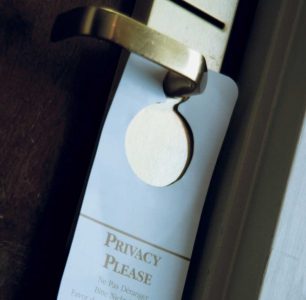Unionville-Chadds Ford challenged on private gatherings
By Mike McGann, Editor, The Times
 When the Unionville-Chadds Ford School District Board of Education meets for a work session tonight, one of the main topics will be establishing the long-term goals for the district, but while it will be the first time the board discusses the issue in public, it won’t be the first such discussion by the board.
When the Unionville-Chadds Ford School District Board of Education meets for a work session tonight, one of the main topics will be establishing the long-term goals for the district, but while it will be the first time the board discusses the issue in public, it won’t be the first such discussion by the board.
The board met in an informal, private gathering in mid-July — called a retreat — with the district’s goals one of the main topics of discussion.
Such retreats are very common among school boards in Pennsylvania — and while critics argue they hurt the transparency of elected bodies, supporters say that the “gatherings” allow for out of the box discussions and a level of creativity that wouldn’t be possible in a standard public meeting. Records show three such “gatherings” in the last 18 months by the UCF board.
The nature — and propriety of such meetings — is now coming under scrutiny with a district resident challenging the time-honored practice. The issue is not contained to Unionville-Chadds Ford — in other districts around the commonwealth, questions have arisen about whether such retreats are in the public interest. Already, Avon Grove School District moved earlier this year to open at least a portion of its retreats to the public.
Mark Stookey of Chadds Ford has both challenged the legality and propriety of the UCF board holding retreats — sessions for informal education and discussion — in a closed-door environment.
“It shows a total lack of transparency,” Stookey said.
Related: Opinion — ‘School boards should take a look at ending retreats’
While the question of these session’s legality offers some gray areas — as argued by Stookey – the district, the district’s legal adviser and the Pennsylvania School Boards Association (PSBA) say that a 2014 state Supreme Court ruling allows public bodies to hold such meetings legally. While the court case that defines the boundaries of such retreats — Smith v. Township of Richmond — makes it clear that boards cannot deliberate on issues at private “gatherings,” discussion and debate are permitted.
For context — “gatherings” appear here in quotes as they are specifically defined as informal, informational meetings under Smith. “Meetings” are more typically defined as the regularly scheduled sessions, such as work sessions and regular meetings at which formal business and votes are taken.
Stookey and critics of the process argue that the “gatherings” — legal or not — and by conducting any business or discussions that impact the future of the school district in private, it shows a lack of transparency and offers opportunities to shut out the public. He cites comments — as reported in April in The Times — by board president Victor Dupuis that the board decided at an earlier retreat to change the district’s budgeting philosophy from its long-standing “conservative” approach to a tighter methodology as evidence that the board has made decisions in private. The board did discuss that decision and took a number of public votes on the 2016-17 budget.
In defense of the “gatherings” both district sources and others pointed that the ability of board members to make suggestions that might be deemed as silly, bizarre or controversial during brainstorming sessions is a valuable tool in seeking creative, “out of the box” solutions. Similar sessions have been embraced in a number of industries.
Stookey also expressed frustration with two other aspects of the issue: his Right To Know requests were turned down and he has had trouble getting timely responses from the district to his inquiries. As such, he enlisted the services of an attorney — and the most recent correspondence he sent to the district has not gotten a formal response. District sources suggested that a formal response to Stookey and his legal representative is “in the offing” while noting that there were no records from the retreat to disclose.
District Superintendent John Sanville declined comment — beyond defending the transparency of the district, which he argues is among the best in the commonwealth in terms of sharing information with the community — citing potential litigation and referring all comment to district Solicitor Jack Merrick.
Merrick cited Smith and said, while he said he personally has not attended the retreats, he has offered guidance to the board and administration, making it clear what is appropriate and what is not. The PSBA offers similar guidance — discussions and debate are allowed at retreats, but formal deliberation is not, according to Emily Leader, Member Services Counsel for the PSBA.
According to the state’s Office of Open Records Executive Director, Erik Arneson, the line between “discussions” — legal — and “deliberations” — not legal — is a fine one. But proving such a violation is the burden of those making the claim.
“As the court said in Smith, Sunshine Act cases tend to be highly fact-sensitive,” Arneson said. “Because the burden is on the plaintiff to establish that deliberations (i.e., discussion for the purpose of making a decision, as opposed to mere discussion) took place at a private meeting, violations can be difficult to prove.
“Under Smith v. Township of Richmond, closed meetings are allowed ‘solely for the purpose of collecting information or educating agency members about an issue.’ In Smith, a total of four meetings were held about the same issue – namely, how quarry operations affected neighboring municipalities and whether it’s possible to mitigate the impact.
“It’s possible that an off-site retreat such as described below could fall under the umbrella of ‘fact-finding,’ ” Arneson continued, “although I’m not aware of any case law directly on point for a meeting that would, apparently, be fairly broad in scope.”
The key issue, legal experts say, is the legal definition of “deliberations.”
In defining terms as part of its ruling in the Smith case, the state Supreme Court defined “deliberations:”
“…the Act defines ‘deliberation’ in terms of discussion of agency business-namely, the framing, preparation, or enactment of laws, policies, or regulations, or the creation of liability by contract or otherwise, …-but only where the discussion is ‘held for the purpose of making a decision.”’
And again, the courts have also ruled that public bodies can reach a tentative consensus — via a straw poll — without violating the law. They still must vote for those issues that require formal approval in public — in this case both the budget process as well as goal setting were/will be discussed in a public session and voted on by the board.
But Stookey argues that the board, in essence moved from discussions to deliberation by largely making decisions — citing the budgeting decision and that the goals will have been largely decided before the board gavels into session on Monday night. Again, though, both of those issues could be considered to fall under administrative guidelines — areas where the board functions as a supervisor to the administration and can informally express its preferences, rather than the sort of item that would require formal board votes.
The area where there seems to be agreement is intent. Stookey makes it clear that he doesn’t think the district or the board is intentionally trying to hide information from the public, but rather misunderstanding the law and how their conduct appears to a community that has had trust issues with the district at times in recent years (alluding to the divisive moves to push through a bond issue after two public referendums to rebuild Unionville High School failed nearly a decade ago).
“Legal or not, it doesn’t look good,” he said.






